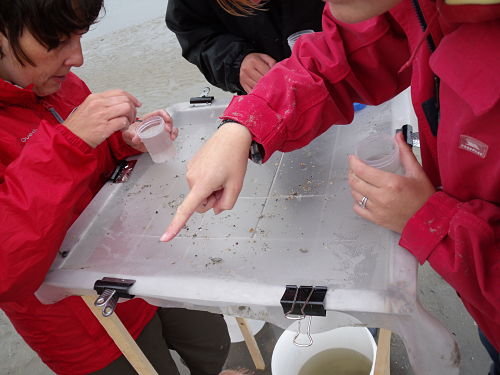Defended PhD by Joke Van Tomme (Marine Biology)
 Sandy beaches are the largest coastal ecosystem on earth, covering 70% of all continental margins. As more people interact directly with beaches than with any other type of shoreline worldwide, beaches are of huge social and cultural importance. Sandy beaches have a multitude of ecological but also economic functions: they are important nursery areas for a variety of marine species and function as natural coastal defence. Beaches are also highly valuable as socio-economic areas since they are key components of many tourist destinations and are important for coastal fisheries. These activities are causing a direct anthropogenic impact and put, together with natural impacts such as sea level rise and beach erosion, a severe pressure on the sandy beach ecosystem.
Sandy beaches are the largest coastal ecosystem on earth, covering 70% of all continental margins. As more people interact directly with beaches than with any other type of shoreline worldwide, beaches are of huge social and cultural importance. Sandy beaches have a multitude of ecological but also economic functions: they are important nursery areas for a variety of marine species and function as natural coastal defence. Beaches are also highly valuable as socio-economic areas since they are key components of many tourist destinations and are important for coastal fisheries. These activities are causing a direct anthropogenic impact and put, together with natural impacts such as sea level rise and beach erosion, a severe pressure on the sandy beach ecosystem.
To preserve beaches and their important ecosystem functions, management and conservation have become critical issues, especially in the light of burgeoning global population growth, demographic shifts towards the coast, and economic prosperity. However, to develop a valuable management strategy, sound knowledge of all the aspects of the beach ecosystem is important. As studies on sandy beaches are however poorly represented in scientific literature, there are some critical gaps in basic ecological information. Although patterns on sandy beaches are well-studied, the functional beach ecosystem is largely unknown. Food web dynamics, species interactions and energetic linkages on sandy beaches are barely studied and ecosystem-wide processes as nutrient cycling, cross-system nutrient fluxes, productivity and connectivity among metapopulations on different sandy beaches are undescribed.
